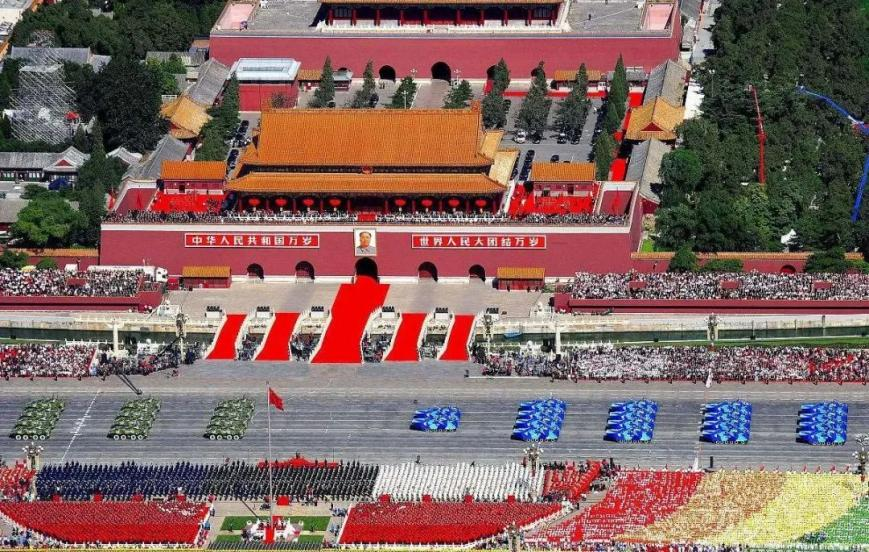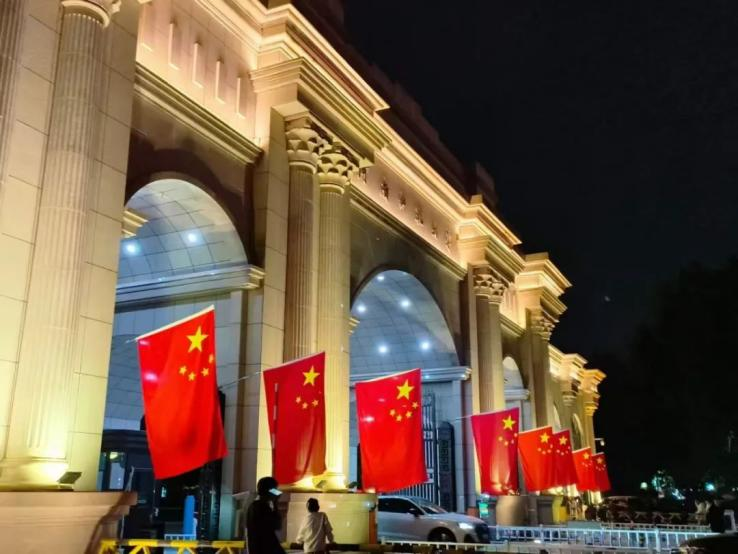The National Day of China, on October 1st, reflects the date of the founding of the People's Republic of China in 1949 and is of symbolic importance in the history of China. This is a moment when China rose from its turbulent past and celebrated its impacts and progress as a nation. The history and importance of National Day reflect these moments of not just political importance but also cultural unison, patriotic education, and national pride. In this blog, we will discuss some of the key aspects associated with this holiday, ranging from historical importance to recommendations for domestic travel, vibrant celebrations, and parades that are held throughout the country.

Nationals Day in China is something grand. The whole country celebrates it with heavy barrages. Prime focus is taken by the capital city, Beijing, which is all lined up for grand parades and ceremonies at Tiananmen Square. These parades are showcases of military displays-marching of tanks, missiles, and aircraft-displaying China's military strength and technological advancement. The cultural performances, depicting the richness of heritage through traditional music, dance, and displays of Chinese art and culture, run alongside the military displays. This is meant to instill pride in achievement among the masses.
This involves conducting celebrations and parades in various ways throughout the towns and cities in China, making the atmosphere quite volatile. Fireworks, light displays, and concerts are some other common features that accompany this holiday. Symbols like the Chinese flag and national anthem during these celebrations enable the reinforcement of identity and unity of the country. At the same time, the National Day allows the citizens to be in deep reflection on the amount of development that China has achieved, especially in the areas of technological innovation, economic growth, and also increasing geopolitical significance.
Meanwhile, the National Day ushers in one of China's biggest travel seasons, better known as "Golden Week." This is the week-long period when millions of Chinese citizens take their annual holidays to embark on national trips and tours across the vastness and diversity of their country. These include major cities a person can travel to or explore some of the cultural and historical strongholds starting with Beijing, Shanghai, and Xi'an, including the Great Wall, Forbidden City, and Terracotta Warriors. These places are jammed during National Day; this can be an added advantage in experience and exploring China's history for the first time.

Regarding internal trips, there will be domestic travel recommendations for people to travel to some less populous but equally beautiful places. Yunnan Province, with its beautiful sceneries and diverse ethnic backgrounds, is quiet compared to the bustling cities. Similarly, Guilin has its Karst mountains and Li River cruises for picture postcard rides. All categories of tourists visit natural attractions, including towering formations of rocks in Zhangjiajie or idyllic lakes in Jiuzhaigou Valley. Such scenic spots allow the guests to appreciate China's beauty as they celebrate the country's strides during National Day.
A very important feature of Chinese National Day falls into the framework of patriotic education, aimed at the youth in the first place. Schools and universities organize special events, flag-raising ceremonies, speeches, and other kinds of educative programs, which are designed to instill national pride and teach people the history of the People's Republic. Such programs focus on China's revolutionary past, the role of the leading position of the Communist Party, and how previous generations sacrificed a lot to build the modern state of China.
On National Day, patriotic education does not only take place within the formal institutions of education; it extends to include the public service announcements, media campaigns, and cultural programs aimed at instilling in people a deep sense of loyalty and pride. More people visit museums and historical sites to learn more about their country's history and culture. These efforts ensure that the spirit of National Day descends upon future generations for further perpetuation in the success and prosperity of China.
National Day belongs not only to the founding of the country but also is a time for reflection upon the remarkable progress and unity that has characterized China. National Day encompasses the history of the modern nation of China and holds a very significant position within the country, while all celebrations, parades, and domestic travel further reinforce national pride. As the country continues to develop and change, National Day acts like a beacon that represents the indelible spirit of the Chinese people and their commitment towards a prosperous future.

 0755-23179541
0755-23179541  sales@oyii.net
sales@oyii.net

